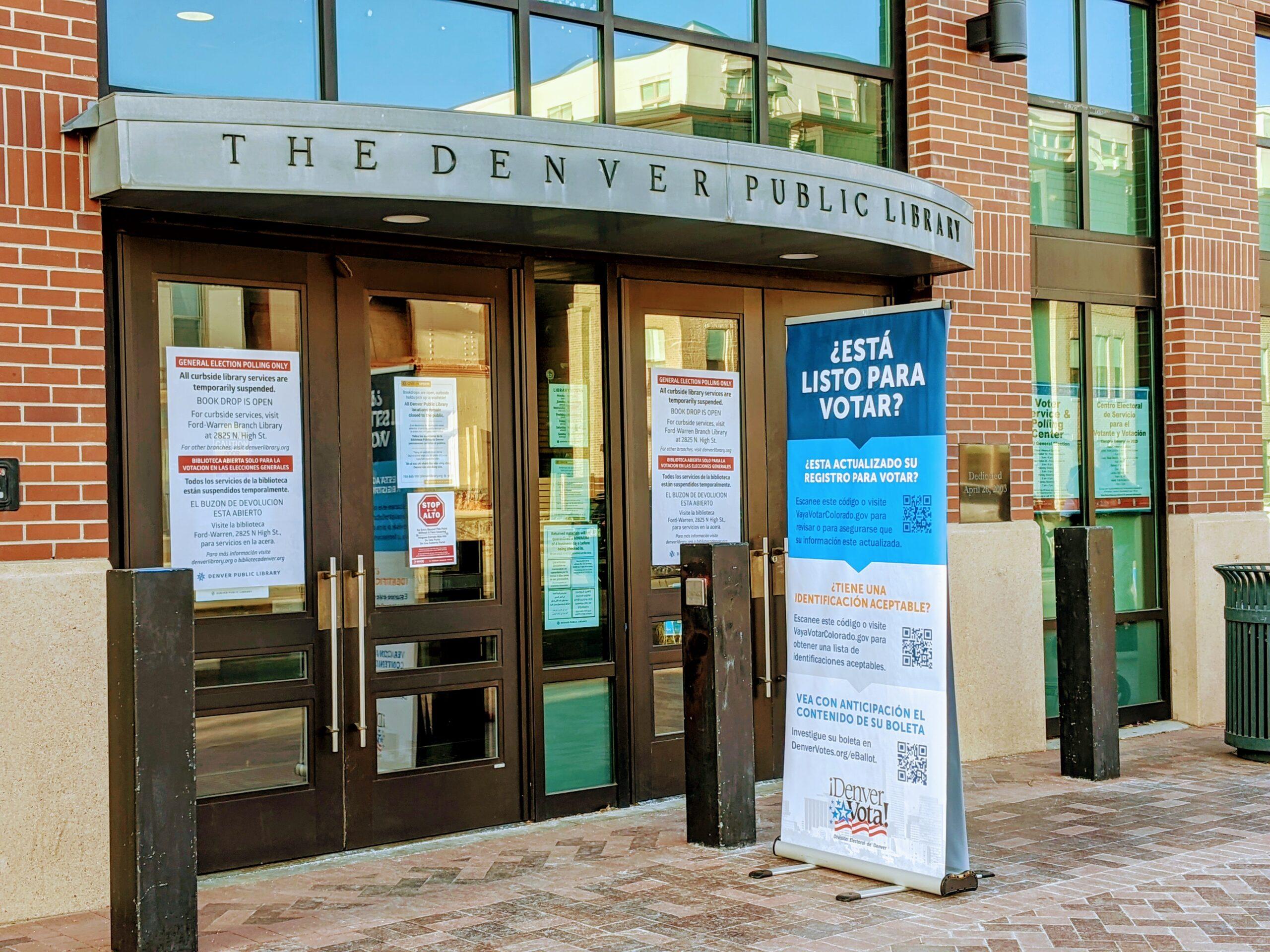Denver voters have backed measures to address climate change and homelessness that together will raise the sales taxes paid in the city to 8.81 percent.
Each measure — 2A on climate change and 2B on homelessness — would raise the tax by .25 percent. About $40 million a year would be raised for each fund, but likely less in the first year because the pandemic has slowed the economy.
While the Election Division won’t finalize the vote until Nov. 19, results released late Tuesday show just over 64 percent of voters approved of each. Results released Wednesday evening were similar.
Theron Makley, who led work on 2A for the citizen advocacy organization Resilient Denver, said Wednesday morning that while proponents were not ready to claim victory, they expected the measure to pass.
Makley said that once the win is official, the next step would be finding people to serve on a citizen advisory council to determine exactly how funds would be spent. Voters saw broad ideas on the ballot, including training people for careers in clean energy industries and taking steps to improve the energy efficiency of homes.
According to the initiative, an office of climate action, sustainability and resiliency and the citizen council are to oversee spending, and investments are to be maximized in “communities of color, under resourced communities, and communities most vulnerable to climate change.”
The climate change proposal is similar to measures that Denver voters approved in 2018 to raise taxes to fund programs to fight hunger and support people with mental illness. In both those cases, it took months for revenue from the sales tax fund to be transferred to the new programs and infrastructure including oversight boards to be set up, and then more time before grants were distributed.
Makley said it might be mid-2021 before the climate change money starts to flow.
On 2B, Mayor Michael Hancock claimed victory in a Facebook message Wednesday. Hancock said voter approval of what’s known as the Homelessness Resolution Sales Tax “is a game changer in our efforts to support residents experiencing homelessness. It will mean more housing with supportive services. It will mean financial assistance to help newly homeless families get back into housing. And it will mean expanded and improved shelters that will bring in more people from the streets.”
Hancock’s housing department described 2B as having passed and said it would now add to its draft 2021 Action Plan its outline for spending 2B funds in 2021. The addition will be released later this month and followed by a public comment period, the department said in a statement on Thursday.
City Councilwoman-at-large Robin Kniech sponsored the City Council initiative to put 2B on the ballot, beginning planning before the pandemic arrived. Housing insecurity is increasing because of the economic slowdown created by the pandemic. Shelters have had to reduce their capacity to create the social distancing needed to slow the spread of the disease.
Kniech envisions using some of the new tax money over the next decade to build 1,800 apartments where residents will have services such as health and job counseling. The 2B funds also will provide rental assistance and create more tiny homes and expand other programs Kniech calls innovative.
Denver already has a housing fund, which is financed in part by taxes, including on marijuana, and in part by fees paid by developers. Kniech said the two funds will complement one another.













